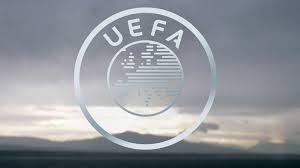By Paul Nicholson
September 13 – With just a day to go before the election in Athens of UEFA’s new president to succeed Michel Platini, two more federations have come out in favour of Slovenian Aleksander Ceferin in his run-off with Holland’s Michael van Praag.
Armenia and San Marino announced they will be supporting Ceferin, adding their slightly smaller weight to the larger European nations of Poland and Portugal who also announced their support in the last few days.
France and Germany have also backed Ceferin. A count of which way the vote looks likely to go now makes Ceferin looking like a clear favourite with 35 (perhaps as many as 38) of the 56 federations favouring him.
Ceferin’s campaign has not been without its detractors with whisperings of him being the preferred candidate and in the pocket of FIFA president Gianni Infantino, then Russian Vitaly Mutko, then having made promises to the Scandinavian federations and then most recently as being under the influence of the Germans.
The reality is that he has lobbied all of them, except Infantino. One of Infantino’s newly appointed political advisors, Norwegian Kjetil Siem, is reported to have said he has lobbied for Ceferin for three years. A remarkable claim that, if true, appears to be slightly spurious. It is understood Ceferin has only ever spoken to him twice.
A meeting in Denmark last week with both candidates and the Scandinavian federations (who stood accused of striking deals with Ceferin) failed to shed more light on their voting intentions though they did dismiss the allegations that any pre-election deals had been done for their votes.
The endorsement of the Germans is perhaps the biggest indicator as which way the election could go. In European football politics they have rarely backed a loser and have well-established positions across the gamut of European football administration from the leagues to the clubs and inside UEFA.
Meanwhile it looks like challenger Van Praag might have had the kiss-of-death support of the English who have a tradition of humiliating themselves in past FIFA election politics and are being held, perhaps slightly unfairly from a club perspective, as prime movers in the revamp of the Champions League qualifying stages in favour of the big nations.
That reorganisation is a key issue for many federations in this election who have been quick to voice their displeasure saying that they, their leagues and their clubs are disadvantaged by a switch to automatic qualification for the top four clubs in the top four European leagues (almost certainly to always be from England, Germany, Italy and Spain).
Van Praag was a key negotiator in this new deal but has said that if elected he would revisit it. Key negotiators on the UEFA side included England’s FIFA vice president and UEFA executive committee member David Gill. Gill was formerly CEO of Manchester United.
Ceferin has kept reasonably politic on the Champions League qualification issue saying that there is not much he can do about it at this stage, but did say it was not a great deal for Slovenia. It is believed he would also revisit the new arrangements.
While these are real election issues for the UEFA presidency, the circus has arrived in Athens with the stunning news that Platini, currently serving a four-year ban from “all football-related activity” has been allowed to make a farewell speech at Wednesday’s election for his replacement.
If there is such a thing as a past coming back to haunt you, then this would appear to be it. Platini’s ban – appealed twice at FIFA and CAS – was deemed to be a clear break of ethics rules and one half of the offence that also brought down FIFA’s previously bulletproof president Sepp Blatter. Blatter sanctioned a CHF 2 million to Platini that both insist was a “gentleman’s agreement” for consultancy work carried out on behalf of Blatter between 1998 and 2002. The ethics committee took the view that the pair had demonstrated an “abusive execution” of their positions.
With much of the election being fought on the election platforms of a requirement for UEFA reform, the arrival of Platini (allowed to speak by FIFA Ethics on so-called ‘humanitarian’ grounds) has created a media sandstorm that threatens to overshadow the real issues at stake.
Also in attendance will be Platini’s former right-hand man, now king of the FIFA-castle, Infantino.
It is their negligence, and Infantino’s in particular while on his FIFA-election campaign, that created the issues that so desperately need resolving with UEFA’s clubs. But the reform in UEFA, over time, will undoubtedly go much deeper into their former ‘duopolous’ regime.
So the question now seems to be whether the focus of tomorrow’s crucial election for European football marks the start of a new era for European football or the passing of an old and, now-discredited, dynasty. A brave new world? Not quite yet.
Contact the writer of this story at moc.l1751326230labto1751326230ofdlr1751326230owedi1751326230sni@n1751326230osloh1751326230cin.l1751326230uap1751326230

